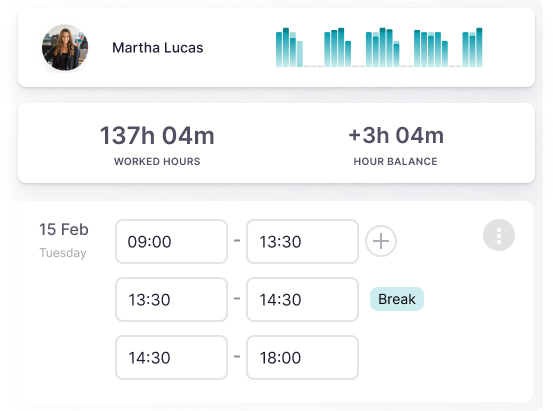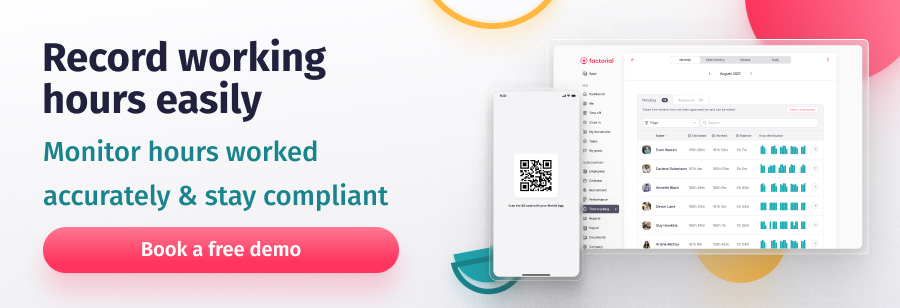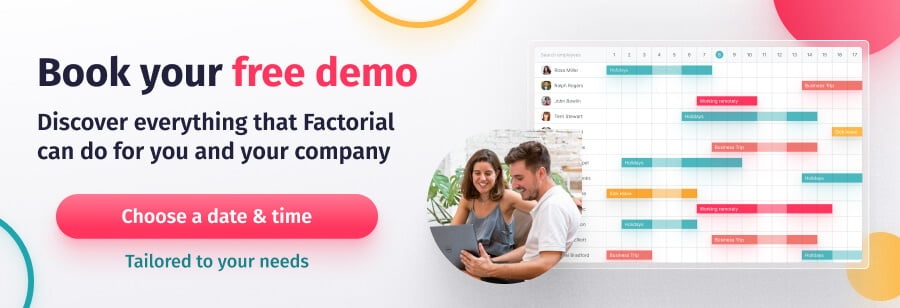For employers in Ireland, knowing the national regulations around employee working time, breaks and record-keeping is key to protecting employees and avoiding legal disputes. There are a few nuances and exceptions, so we’ve outlined the most important rules to be aware of in this guide.
Plus, you can use our free work hours calculator to monitor hours worked for a quick and easy solution.
How many hours can an employee work per week in Ireland?
The Organisation of Working Time Act (OWTA) is the law that outlines maximum working hours and break entitlements. It dictates that:
- Employees can’t work over 48 hours per week (on average), excluding annual leave, sick leave, parental/adoptive leave and commute time (unless there is no fixed work location)
- Employers working within different industries must work out an employee’s average weekly hours differently, although in most cases it is 4 months (prisons, tourist attractions and hospitals may differ)
There are also stipulations surrounding rest periods in between working days. Employees must have over 11 hours of rest between working days as well as 24 hours not working within any 7-day period. This should be a Sunday unless their contract states otherwise. If this isn’t possible for any reason, they are allowed two 24-hour periods of time off work during the following week.
How much time must employees spend on breaks in Ireland?
The OWTA also dictates breaks must be taken and should not be counted toward working hours, although paid breaks are not a legal right, as long as this is written in the employee’s contract.
Irish employees are legally entitled to:
- 15 minutes of break time after 4.5 hours of work
- 30 minutes of break time after 6 hours of work
- Additional breaks if they are shop workers (a 1-hour consecutive break between 11:30-2:30) if their shift is over 6 hours
An additional paid 60-minute break must be given to breastfeeding mothers within the beginning 6 months of their child’s life.

Are there any exceptions?
There are a few industries and individuals that are exempt from the above rules, including:
- The Gardaí
- Defence Forces
- Industries involved in transport
- Employees between the ages of 16 and 17 (as a result of the Protection of Young Persons (Employment) Act)
- Shift workers, in some cases
If an individual cannot take their break, they must inform their employer within one week (in writing). The reason must be outlined in this memo. The employer must then consider any health and safety issues that could arise as a result of this and enable you to take your outstanding break ASAP. If an employee doesn’t accept this, they are not legally entitled to another offer.
Do employers need to keep records of working hours in Ireland?
Irish employers are legally obliged to keep accurate records of their employee’s working hours per day and week, plus any breaks and leave they’ve taken. This can either be done electronically using time tracking software and leave management software, or it can be done manually with an OWT1 form.
These records must be easily understandable and made available to inspectors sent from the Workplace Relations Commission. They must also be kept for 3 full years (it is exempt from GDPR rules).
If records are not kept or are not made available to inspectors, employers can be fined up to €1,900. The employer will be held fully responsible, not the employee.
What records must be kept of working hours in Ireland?
Irish law states that employers must keep the following records:
- Employment contract copy
- Personal details (Name, address, PPS number, overview of employee duties)
- Days or hours of leave taken per week, including pay for these days
- Days and hours worked per week (in total)
- Public holiday pay
- Copy of working time record (e.g. timesheet or clock-in data)
Who keeps the record of working hours must be agreed between the employee and employer. If both agree, the employee can fill out their digital timesheet or OWT1 form ad have it signed by their employer every week.
What records must be kept of breaks and rest periods in Ireland?
If an employer uses time tracking software or a manual timesheet, they don’t have to record breaks as long as they:
- Inform employees of their break entitlement in writing
- Outline the terms of your collective agreement or employment regulation order in writing
- Inform employees of the process if someone is unable to take a break
Employers must keep written evidence of any of the above informs shared with staff.
You can read the full law here or contact the Workplace Relations Commission’s Information and Customer Service.
How to keep digital records of working hours, breaks and leave
Irish law stipulates that employers must keep records of their employee’s working hours per day and week, plus any breaks and leave they’ve taken. Many companies are still doing so manually using Excel spreadsheets and timesheets. However, switching to a digital solution can save your employees valuable time and improve the accuracy of your records so you can present them to inspectors with confidence in an easily understandable format.
Factorial’s Time Tracking software allows you to do just that. The centralised platform gives managers full visibility over the fulfilment of expected hours and break times to ensure compliance with The Organisation of Working Time Act (OWTA). Employers can also approve or reject digital timesheets in a few clicks, giving total control to improve compliance with internal time tracking policies and the law.

What’s more, employees can clock in and out from anywhere using the mobile app, ensuring that records accurately reflect hours worked and include additional details about working location. Records are also editable for total flexibility, so you can feel confident in employee timesheets and hours worked per shift.
Employee leave is also taken into account and can be monitored from the same place. Our Holiday and Absence Management tool automates annual leave requests and incorporates time off into records of working hours, removing the need for multiple systems. Plus, you can tailor time-off policies to individuals, teams and locations and make these easily accessible to employees to ensure you’re communicating clearly as stipulated in the OWTA.
To speak to an expert about how Factorial can work for your business, book a free demo. Or, if you’d like to try it out for yourself, sign up for a free 14-day trial.



